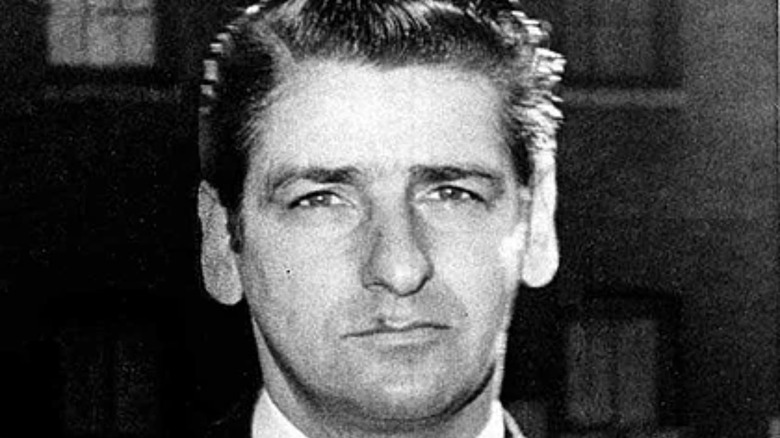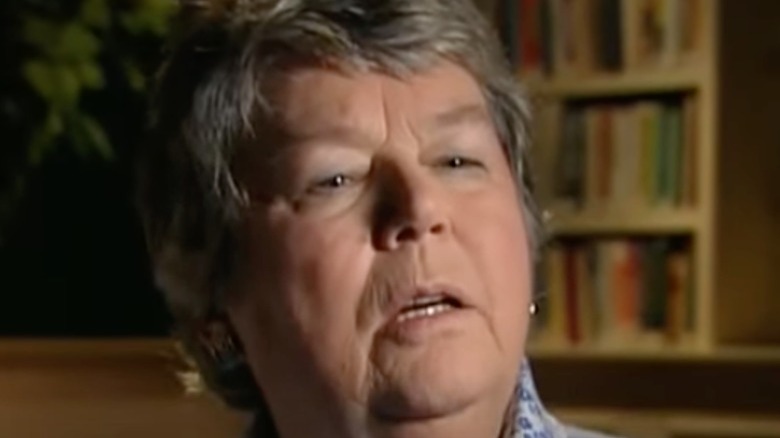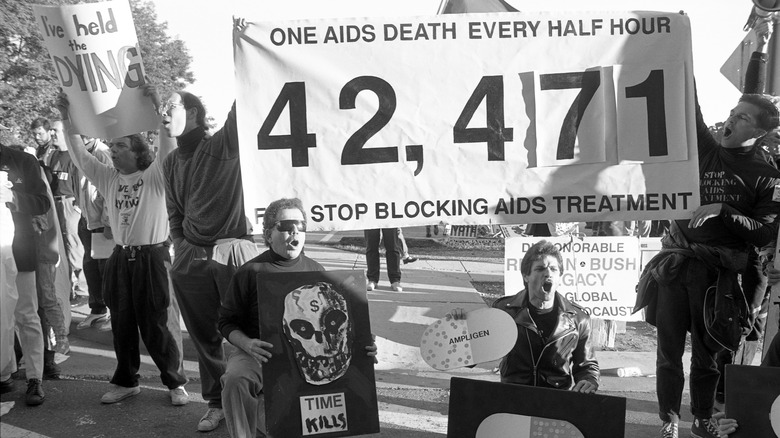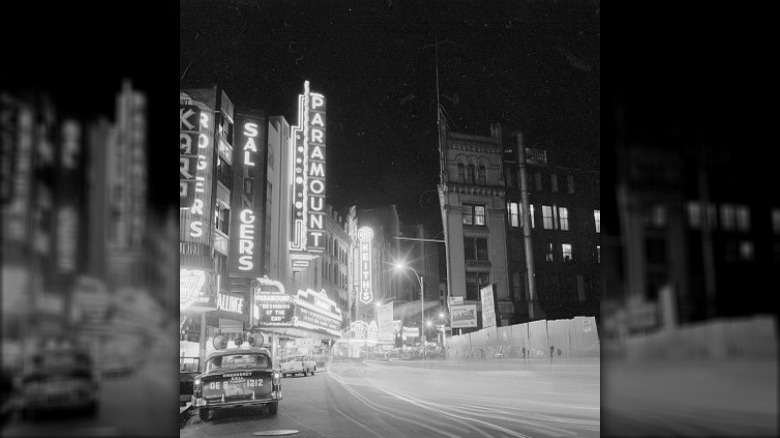What Happened To Loretta McLaughlin & Jean Cole From The Boston Strangler Case?
We may receive a commission on purchases made from links.
Though United States serial killer cases reportedly hit a peak between 1970 and the turn of the millennium, few cases have instilled more terror into a community as that of the so-called "Boston Strangler," (pictured) who between 1962 and 1964 choked to death 13 women in the Greater Boston area, seemingly at random. However, though commonalities existed between even the earliest of the killer's crimes, investigators were slow to connect them and declare the spate of recent killings the work of a serial killer.
However, two journalists working for the Boston Record American, later known as the Boston Herald, understood the interconnectedness of the murders. Loretta McLaughlin and Jean Cole convinced their editor to allow them a series examining the early murders and popularized the view that the killings were the work of one man, rather than separate copy-cat incidents — an idea that police tried to instill in the terrified local population, according to "The Boston Strangler," by Frank Gerold.
McLaughlin and Cole's game-changing investigative work has been given the spotlight in recent years, thanks to a high-budget Hulu series starring Kiera Knightley as McLaughlin. But the Boston Strangler case was only one part of these trailblazing women journalists' careers: What came next?
Loretta McLaughlin's career in science
Following the identification of the Boston Strangler as Albert DeSalvo, who was sentenced to life imprisonment for an unrelated crime in 1967, Loretta McLaughlin left the world of traditional journalism, seeing out the end of the 1960s in working for various scientific institutions.
She first joined Harvard University as a science writer, a position that would arguably come to define the direction of her writing career for the rest of her life. Despite being part of a prestigious university, Loretta McLaughlin only stayed in the role for a short time. Pivoting to the private sector, she next took a position at the Massachusetts Eye and Ear Infirmary, where she exploited her talent with words and maintaining her readers' attention to serve as their executive director of public relations.
But she couldn't stay away from newspapers for long. As her son Mark McLaughlin, who himself later worked for the Boston Globe, told the Boston Globe: "I couldn't really picture her doing anything else. She needed to be around ideas, and writing, and arguing in the best sense of the word — that 'What do you think?' Journalism provided her with a mental satisfaction and engagement that she couldn't find elsewhere ... [it] was a natural thing for her."
She was a prominent AIDS reporter
Loretta McLaughlin made her return to Boston's newspaper industry in the 1970s, first rejoining the Boston Record American before transferring to the Boston Globe, where she used her experience at Harvard University and at the Massachusetts Eye and Ear Infirmary to turn away from crime and to specialize in writing about medical issues. Her decision to choose medicine as her focus positioned her on the frontline of one of the biggest unfolding news stories of the 1980s: the AIDS crisis, a key subject for McLaughlin right up until her retirement. McLaughlin was one of the first journalists to focus on the disease in the early 1980s.
By the end of the decade, McLaughlin was considered an expert, bringing her knowledge to the academic world, publishing an article in the New England Journal of Public Policy. She later went on to become a senior fellow at the Harvard AIDS Institute and continued to publish work on the disease through the 2000s.
Her late career and retirement
In the 1980s, Loretta McLaughlin's interest grew regarding another major medical news story: the ongoing medical, political, and cultural impact of the birth control pill. Her interest led her to pen a notable history of the pill's development and deployment: "The Pill, John Rock, and the Church: The Biography of a Revolution," which was published in 1982.
McLaughlin was honored in the final year of her Boston Globe career with a last prestigious assignment: the editorship of the newspaper's Editorial Page, of which she had served as deputy editor for many years.
With a journalistic career spanning five decades and some of the biggest news stories of her time, McLaughlin finally retired a year later in 1993, leaving behind her a sterling journalistic reputation as a rigorous investigator and a keen supporter and mentor of younger journalists. She died in 2018, at the age of 90.
Jean Cole's cutting-edge crime reporting
Loretta McLaughlin's partner on the Boston Strangler case, Jean Cole was already well into her career when the two collaborated on their seismic investigation of the serial killings. After the conclusion of the Strangler story, Cole continued as a reporter on the Boston Herald American, specializing in crime. And, as noted in "When in Boston: A Timeline and Almanac," by the Bostonian Society's Jim Vrabel, Cole is credited with popularizing yet another phrase in the world of Boston crime reporting: the "Combat Zone."
An area of Boston known for its adult entertainment industry, as well as for exceedingly high crime rates in the late 1960s, Cole adopted the phrase as the title of her crime column, which focused exclusively on the area in question.
Cole also broke numerous huge investigative stories involving Boston care homes, leading to an improvement in services for those in care.
A long retirement
Jean Cole — whose full name was Jean Cole Harris, having married Boston Globe journalist Frank P. Harris — continued to work full-time as a journalist for the Boston Record American until her eventual retirement in 1981. Her distinguished career, which had begun back in 1944, brought her numerous journalistic awards over the years, though her work on the Boston Strangler story now stands as her most famous assignment.
Cole's long retirement was seemingly devoted to family life: from her two daughters with Frank, she had 10 grandchildren and five great-grandchildren at the time of her death. Like her former esteemed colleague Loretta McLaughlin, Jean Cole lived to a ripe old age and died in 2015 at the age of 89. Although she will forever be associated with Boston, the city that she worked and reported on for the entirety of her career, her obituary states that the last years of her life were spent in Holmes Beach, Florida.





